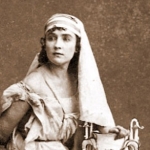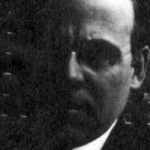1
People who have no children can be hard:
Attain a mail of ice and insolence:
Need not pause in the fire, and in no sense
Hesitate in the hurricane to guard.
And when wide world is bitten and bewarred
They perish purely, waving their spirits hence
Without a trace of grace or of offense
To laugh or fail, diffident, wonder-starred.
While through a throttling dark we others hear
The little lifting helplessness, the queer
Whimper-whine; whose unridiculous
lost softness softly makes a trap for us.
And makes a curse. And makes a sugar of
The malocclusions, the inconditions of love.
2
What shall I give my children? who are poor,
Who are adjudged the leastwise of the land,
Who are my sweetest lepers, who demand
No velvet and no velvety velour;
But who have begged me for a brisk contour,
Crying that they are quasi, contraband
Because unfinished, graven by a hand
Less than angelic, admirable or sure.
My hand is stuffed with mode, design, device.
But I lack access to my proper stone.
And plenitude of plan shall not suffice
Nor grief nor love shall be enough alone
To ratify my little halves who bear
Across an autumn freezing everywhere.
3
And shall I prime my children, pray, to pray?
Mites, come invade most frugal vestibules
Spectered with crusts of penitents’ renewals
And all hysterics arrogant for a day.
Instruct yourselves here is no devil to pay.
Children, confine your lights in jellied rules;
Resemble graves; be metaphysical mules.
Learn Lord will not distort nor leave the fray.
Behind the scurryings of your neat motif
I shall wait, if you wish: revise the psalm
If that should frighten you: sew up belief
If that should tear: turn, singularly calm
At forehead and at fingers rather wise,
Holding the bandage ready for your eyes.




















Comment form: